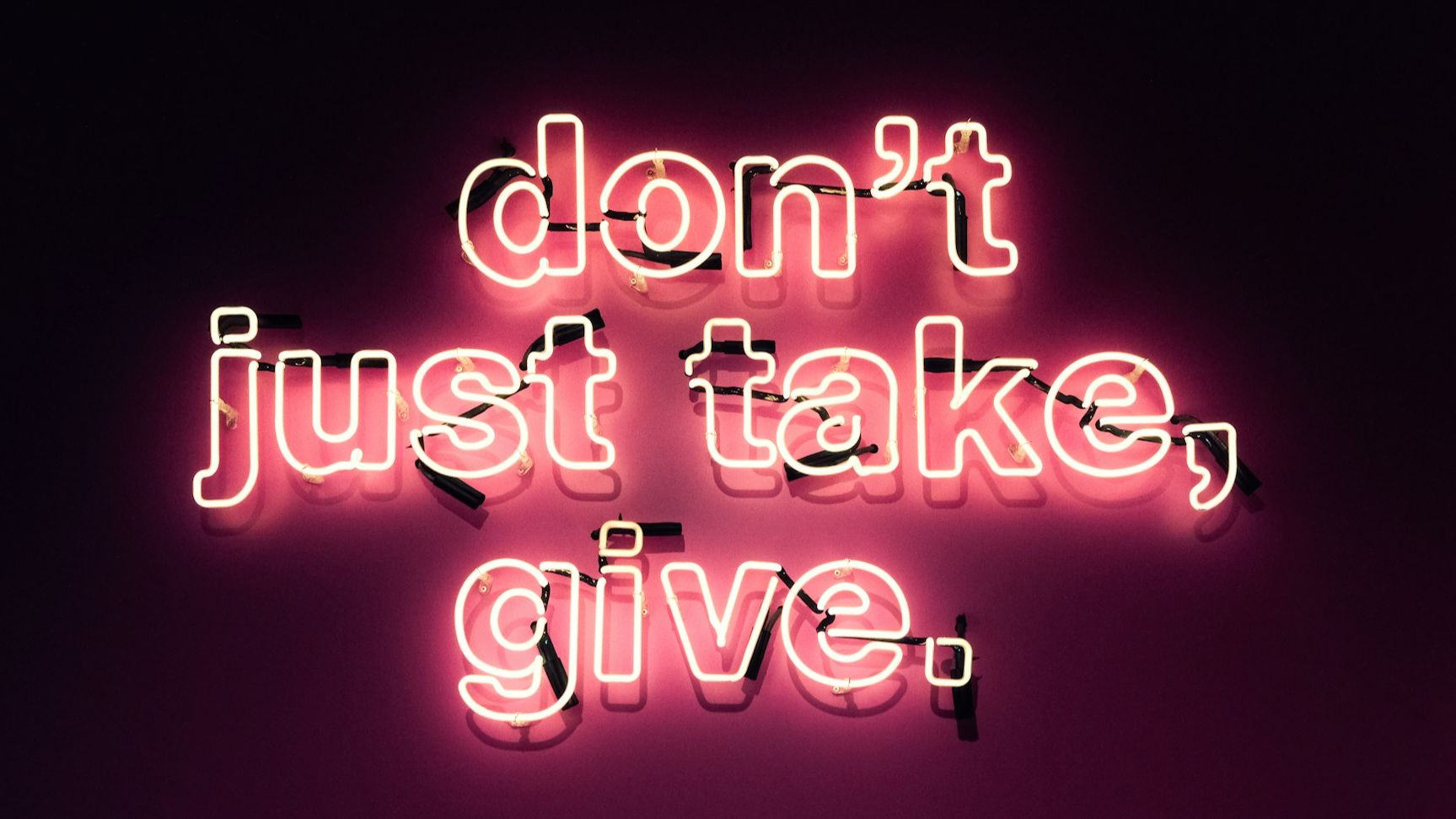
What’s up with me?
Jun 25, 2025
Anyway, I ask myself: Why do I care?
Sure, practices purported to transcend ego instead teach self-absorption. But it’s in the name— "personal growth" and “self-help.” What’s got me?
Because I’m guilty of all of this.
Sometimes despite my best efforts, I’ve taught people to ignore their minds in order to stay with the sensations of their bodies (rather than integrating them); to ‘surrender’ to their feelings-in-the-moment and ignore larger consequences or agreements and the greater wholes that hold them. I’ve corrected a lot of these mistakes, made amends, even evolved the practice and training. Yet I still can’t quite escape the selfishness of ‘wellness’ culture. Prime example: A couple of years ago we hosted a “Give Fest” at the Relateful Studio in Austin with a reverse silent auction, where people bid on what they wanted to give to a local nonprofit. Even my wife and I didn’t follow through on what we ‘won’.
Let us redefine wellness and self-development. Let us change the metrics to gratitude, forgiveness, acceptance of ours and others' flaws, showing up for family, friendship, and our greater communities. Let us celebrate unglamorous, unwitnessed interdependence.
Three alternatives: What is it all for?
1) Burning Man is actually a great example of a positive alternative. The economy is about gifting—and after your first year, it’s well known that to get the most out of the experience, you need to give. People camp in communities, build massive art projects and cars together, and give them freely without credit, burning them at the end. It’s all about creating for the whole, being present with each other in non-transactional relating. All of this disrupts the self-reification loops in such a way that people are consistently shaken from long held encumbrances, and come out of the desert transformed. I say this as an admirer but not a fanatic—I went to Black Rock City in 2012 and 2014, and then didn’t go again.
2) Relatefulness, especially in Level Up ⬆’s Leadership Program and the The Relateful Coaching Training, does not fall into these problems nearly as badly as almost every other community I’ve seen. We claim our directionality of truth + love. This means the personal can’t be number one—individual expression and growth is always in service of something greater. Of course we make mistakes. (For example, the Level Up structure highlighted individualism. We’ll be returning to a cohort-only model this Fall—more on that in a future email). But we’ve done a really good job focusing on being with what is, especially relationally and communally.
We don’t abandon compassion and honesty in service of making sure people feel seen, heard, cultivating a ‘safe space’, or maintaining instagram-defined-trauma-therapy-norms. This is hard, because I not only want people to feel seen, heard, safe, and heal, I think it’s crucial for a healthy community and for the true pursuit of truth and love. It just needs to be in service of love/truth, rather than an end unto itself. It needs to come authentically from the moment, not as a script or status signal or performance. We run into generative friction embracing the seeming paradox of this polarity all the time, and it is incredibly demanding of our facilitators to walk this tight rope. It demands that we are always changing, individually as leaders, as a community, and even the practice itself. Even our coaching teaches revealing identity commitments, inherently making the self an object in a larger self that can choose “yes” or “no” to, versus reinforcing a self and an existing worldview.
And even as we teach people how to meta-narrate as a way to witness and disembed themselves from unconscious habits that have been running them, we recognize that the compulsion to name and categorize experiences —spiritual or otherwise— often becomes a form of conceptual possession, serving self preservation rather than self-transformation.
3) Frozen ☃️, The Disney movie, shows another fantastic example of a healthy alternative. (I just watched the Broadway version with my kids this weekend, so it's fresh on my mind).
In my view, the critical part of Elsa moving from “Conceal don’t reveal” to “Let it Go” is not about self-expression, it's about surrendering the need to control, particularly others’ reactions to her true nature. As a result she loves what she previously saw as her shame (her ice power), an identity transformation that eliminates the victim-perpetrator dynamic entirely and unlocks her ability to use her power for everyone’s benefit.
But of course the most incredible part is reframing the trope of “true love”—not just from romantic to familial love, but about the act of loving others. The secret that ‘healed’ Anna’s frozen heart wasn’t receiving ‘true love’ from someone else, but her performing a selfless act of true love herself. Even better, she truly loved the one who accidentally caused the curse in the first place, in a show of what I like to call “true forgiveness”—there was never any threat to love’s presence in the first place. So in some real sense, nothing to forgive. Family love, particularly love that endures despite harm, represents the ordinary, unglamorous love that doesn't depend on worthiness or reciprocity (romantic love ideally is the same, but often feels like something we need to earn or could lose).
Oh and there’s the wonderful Olaf, as a projection of the best of Anna and Elsa’s innocence in childhood. And I love that it’s not spiritual :)
With love, Jordan
More like this?
Fresh practices, psyche-activating perspectives, & relationship tips every week in your inbox. Plus occasional updates from our team.
We hate SPAM. We will never sell your information, for any reason.

